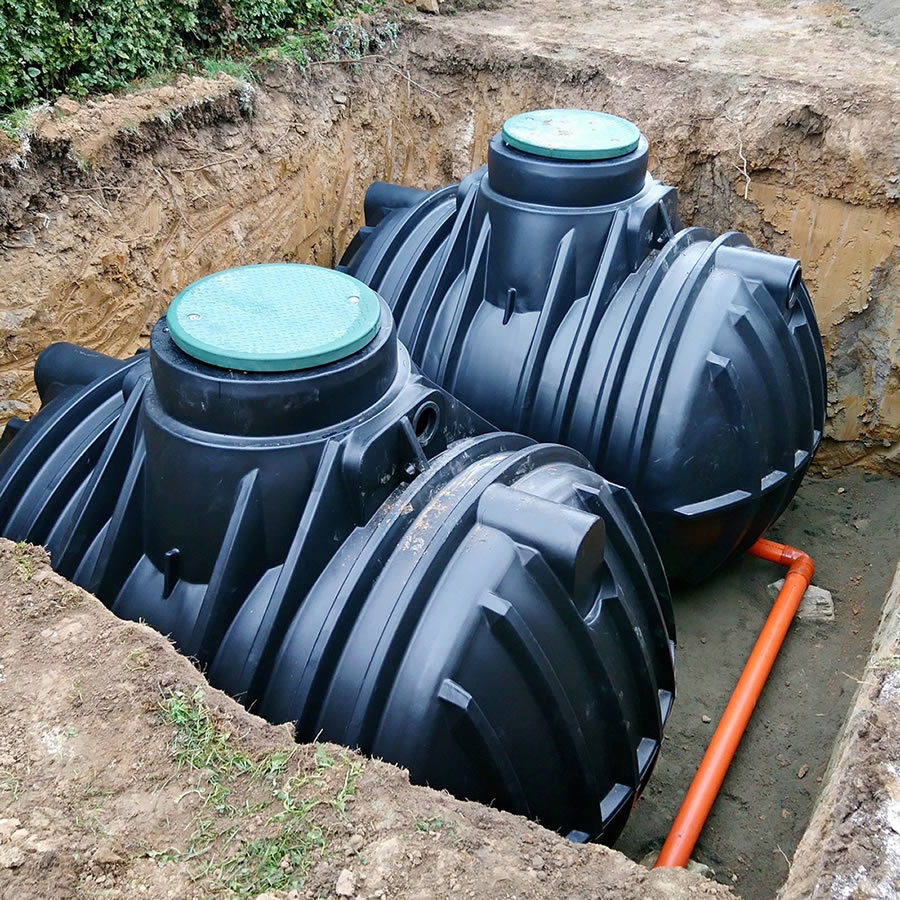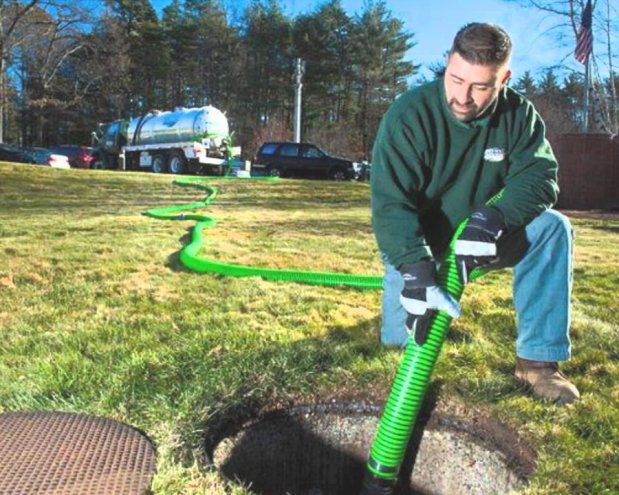
12
If you live in a rural area or off-grid, then your house is probably NOT connected to a centralized sewer system. Instead, you likely rely on an on-site wastewater treatment facility, usually a septic system. In fact, about 1 in 5 households use some sort of septic system for their waste and wastewater treatment. If you are curious about how the septic tank system works, then you are at the right place. Charlotte Septic Pros is your source for septic services, repairs, and installations, and we are here to explain how these vital structures work.
There are many types of septic systems, but we will go over the conventional septic tank system. The standard system consists of three primary components: the pipes, the tank, and the drain field.
Let’s say you handle your business and flush the toilet. The waste and wastewater travels through the drains and into the septic tank. The tank is a large, watertight container usually made of concrete, fiberglass, polyethylene, or a combination of these. The tank also houses bacteria and chemicals, which we will go over later.
While the solid waste sinks to the bottom of the septic tank, the scum (such as oils and greases) floats to the top. The wastewater, meanwhile, exits the septic tank through a T-shaped outlet and travels to the drain field.
The drain field is essentially a shallow pit where the wastewater goes and percolates through the unsaturated soil for treatment. The soil naturally removes harmful bacteria, viruses, and pollutants from the wastewater.
So, the wastewater percolates through the soil for treatment. What happens to the solid waste? It stays in the septic tank. The inquisitive among you is probably thinking, "For how long?" Well, that’s a bit trickier.
Fortunately, there is "good" bacteria and chemicals in the septic tank. These break down solid waste into sludge. Sludge is denser and saves valuable space in the septic tank. Still, even the sludge will accumulate. Eventually, the septic tank must be pumped or cleaned.
Septic pumping is like a quick vacuum while septic cleaning is like deep cleaning. Septic pumping removes a large portion of the wastewater and scum in the septic tank as well as some of the sludge. Septic cleaning gets rid of it all.
How often you schedule septic pumping or septic cleaning depends on the size of your septic tank, the size of your household, and the condition of the "good" bacteria in the tank. A good rule of thumb is to schedule a septic pumping once every 3 to 4 years and a septic cleaning once every other septic pumping appointment.
If you live in Charlotte or surrounding areas and need septic services, repairs, replacements, or installations, then grab the phone and call Charlotte Septic Pros. We offer quick, affordable, and reliable service. We are happy to schedule a convenient appointment or arrange an emergency septic pumping today. Our live representatives are on standby to take your call.

12
A single slow drain in your home can feel like a minor inconvenience. Maybe the sink takes a little longer…
Read more
05
Are Slow Drains a Septic Issue or Just a Clog? Slow drains are one of those household problems that start…
Read more
02
What Septic Service Techs See That Homeowners Miss Most homeowners only think about their septic system when something goes wrong.…
Read more
21
Simple Habits That Protect Your Septic System A well-functioning septic system does its job quietly, but the moment something goes…
Read more
14
Pump Now or Pay Later: The Real Cost of Skipping Maintenance A properly functioning septic system is easy to forget…
Read more
11
Why Your Septic System Always Acts Up at the Worst Time Homeowners often feel that septic problems strike at the…
Read more
04
Early Warning Signs Your Septic Tank Needs Pumping For homeowners who rely on a septic system, routine maintenance is not…
Read more
29
Why Does My Septic System Smell Fine One Day and Terrible the Next? If you own a home with a…
Read more
19
Is Your Septic System Overdue? Simple Home Checks You Can Do Today For many homeowners, the septic system is a…
Read more
13
5 Signs Your Septic Tank Is Overdue for Pumping Your septic system works quietly behind the scenes, managing wastewater from…
Read more